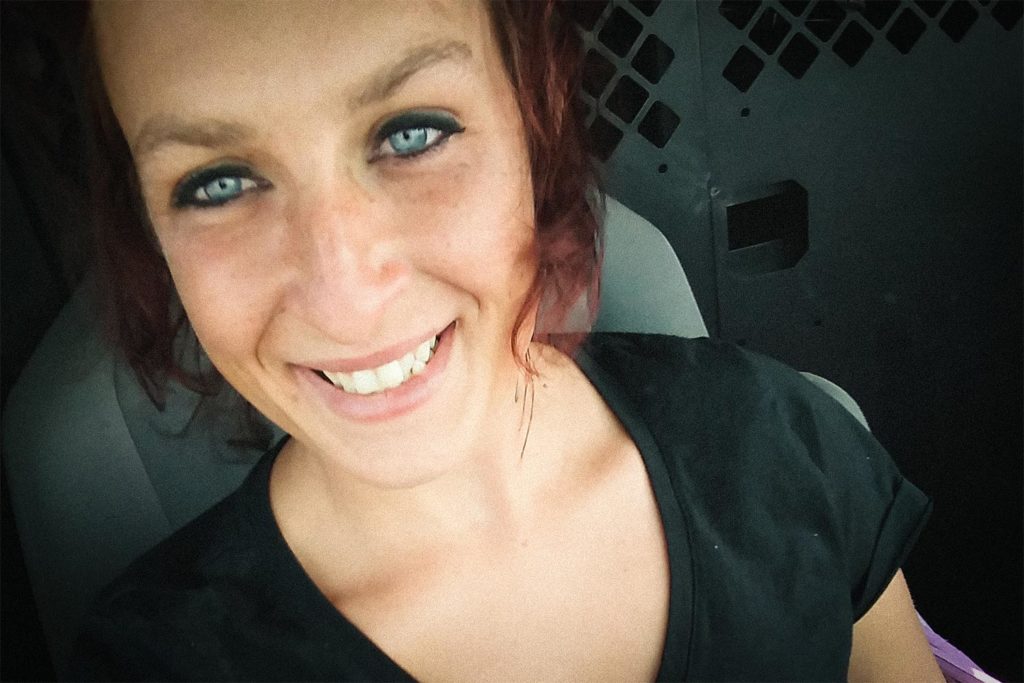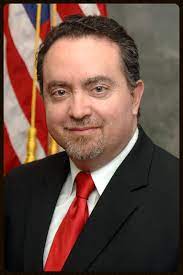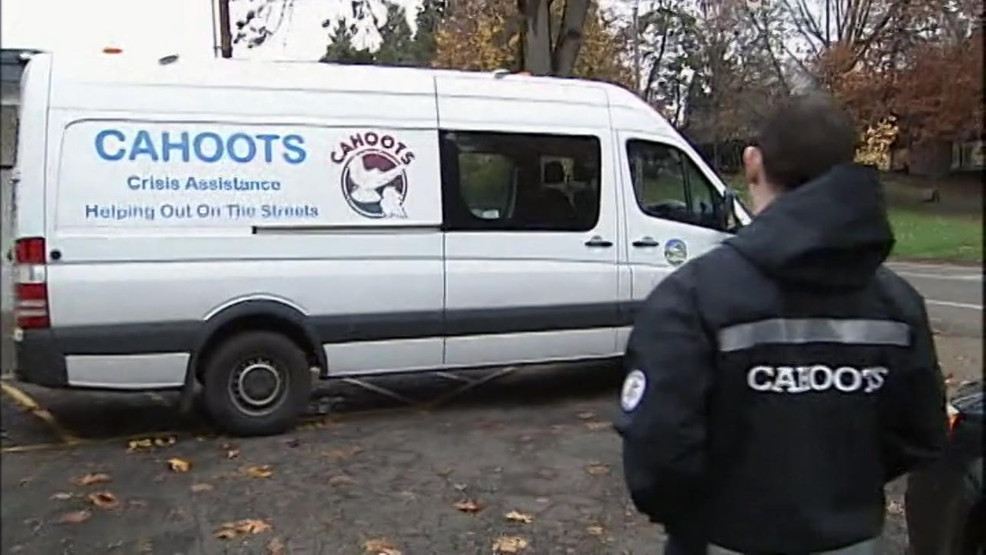
After weeks of arguing, the US Senate approved President Biden’s nomination for the new head of the powerful US Department of Health and Human Services (HHS), Xavier Becerra, former California Attorney General.
There is a lot of public attention about the next leader of HHS, because among its many duties, HHS oversees addressing the COVID pandemic in the US.
But I have a personal reason why I am passionately interested:
Only a few weeks ago, on 24 January 2021, and just a few blocks from our home in Eugene, Oregon where I am writing this, Ivory McCuen, 30, was homeless and died of hypothermia. Ivory was a frequent user of the mental health system. This peer had been studying mental health counseling. While I never had the honor of meeting Ivory, I have spoken three times with her only sibling, Breezy Smith.

Breezy was very close to her younger sister, who was a wonderful singer and artist. Ivory was also a mother of two boys. I have been very personally affected by this death of a neighbor who was a mental health consumer peer.
Deciding who runs a huge federal agency involved with our well-being is not just a theoretical political exercise, real human lives are at stake.
So, I am personally interested in who runs HHS. One of the agencies within HHS is a huge mental health agency that has been funding the promotion of involuntary, court-ordered mental health treatment in peoples’ own homes, out in the community.
In the case of Ivory, she needed warmth and a home the night she died. Court-ordered psychiatric drugs deliver neither warmth nor a home. More about Ivory in a moment.
This is my 45th year working as a community organizer for those of us who are psychiatric survivors. I know that community organizing is based on people power. But I confess to you readers, about one year ago, I tried to go it alone and get information from this federal agency. It did not work. Their betrayal is enormous. I need your help.
SAMHSA’s Betrayal
The US Substance Abuse and Mental Health Administration (SAMHSA) has always been imperfect. But at least they used to pretend to support the empowerment and self-determination or mental health consumers. There is a particular betrayal by SAMHSA that especially sticks in my craw, as a survivor myself of coerced psychiatric drugs.
This is not about Democrat versus Republican, Blue State versus Red State. Though I supported President Obama, SAMHSA’s particular backstabbing actually began during Obama’s administration. But Trump continued this Obama monstrosity.
SAMHSA has funded two major grants, one in 2016 and another in 2020, for 32 projects for involuntary outpatient commitment. For more than one year, I have requested any information from SAMHSA evaluating these projects, and I even filed a Freedom of Information Act request (FOIA), but I have never ever received any information at all.
The next head of HHS will select the new leader of SAMHSA, so perhaps there will be an opportunity for a perspective that is more supportive of human rights.
Coerced Mental Health Care Hurts Everyone, Maybe You!
For decades, thousands of Americans have experienced court-ordered Involuntary Outpatient Commitment (IOC), since almost all US states have passed laws allowing this. But there is something especially disgusting about SAMHSA spending more than $25 million for IOC.
You can download a simple three-page spreadsheet about this SAMHSA support of IOC, and find out if your state is one of those listed: https://aciu.info/wp-content/uploads/2021/01/samhsa-iot-awardees-2016-2020.3.pdf
Within that spreadsheet, you will notice there are links to the actual SAMHSA list of programs funded by both of their grants.
Along with the National Institute on Mental Health (NIMH), SAMHSA is one of the biggest federal agencies in behavioral health, and of course where a lot of the mental health consumer movement gets its money.
Many of us had already been concerned about SAMHSA, but at least it seemed to support our movement, such as sponsoring the popular Alternatives Conference.
As I’ve said, for more than one year, I have been requesting information from SAMHSA about their support for coerced outpatient mental health. SAMHSA has made two major grants to dozens of locations to support what they mistakenly call “Assisted Outpatient Treatment” (AOT), but is really Involuntary Outpatient Commitment (IOC).

A blogger on mental health, Pete Earley, has written a very interesting article. In the past, Pete and I have disagreed about mental health policy. I’ve recently exchanged messages with Pete, and I am very impressed with the direction in which he has been headed. In a recent blog, Pete wrote that about a half dozen folks are being considered for the head of SAMHSA. Several are very much part of the system. But one is an individual who has, for decades, identified as a mental health consumer, Paolo del Vecchio.
Here is the Pete Earley article: http://www.peteearley.com/2021/01/15/who-will-replace-dr-mccance-katz-at-samhsa-could-be-a-surprise-but-heres-six-names-being-whispered/
Here is more info about Paolo: https://www.samhsa.gov/about-us/who-we-are/leadership/biographies/paolo-del-vecchio
I have personally known Paolo for decades. While we do not always agree, he has shown knowledge and support for values in our movement. Moving toward support for Paolo or someone like him to head SAMHSA would be a great move. According to Peter Earley’s blog, because Paolo opposed IOC, SAMHSA had transferred him out of a key leadership position.
When I filed a Freedom of Information Act (FOIA) request, I even asked for “off the shelf” information as part of my request. This off-the-shelf information should be readily available. In fact, Paolo explained to me that Congress mandated annual reports about the grants. But SAMHSA could not even provide these annual reports. People can read the record of my one year of futilely asking SAMHSA here, newest message on top:
https://aciu.info/wp-content/uploads/2021/01/samhsa-foia-request-exchange.pdf
Earlier this year, I did a vlog about SAMHSA’s betrayal. You can find my video and transcript here:
http://davidwoaks.com/oaks-vlog-1-mental-health-disability-revolution
SAMHSA has found millions to support IOC, but SAMHSA claimed poverty when it came to supporting the popular annual Alternatives Conference, which since 1985 has provided a way for hundreds and thousands of US mental health consumers and psychiatric survivors to work together.
It is no surprise that the federal agencies who are supposedly working for our mental well-being instead use coercion to support “normality” and silence the voices of mental health consumers and psychiatric survivors. SAMHSA is not the only federal mental health agency with a bias toward the old-fashioned medical model approach, and against an empowerment-based model. My friend, psychologist Al Galves, PhD, told me:

“My hypothesis is that the National Institute on Mental Health (NIMH) spends more than 80% of its $1.7 billion each year on studying the brain — neural networks, cells, molecules, neurotransmitters, other chemicals and genetics. This is a big problem because human beings don’t use our brains or our genes to live our lives. We use our minds — our thoughts, feelings (emotions), intentions and perceptions to live our lives. The mind is not the same as the brain.”
Mental & Emotional Well-being is a Life & Death Issue
As we all know from too many tragic headlines, the police often intervene in incidents when de-escalation might have saved lives. Internationally, there is interest in finding more peaceful alternatives when an individual is experiencing mental and emotional challenges. One of these alternatives was started back in 1989 here in Eugene, Oregon: CAHOOTS. This stands for: Crisis Assistance Helping Out On The Streets. Briefly, when 911 is called, sometimes a CAHOOTS van is sent out with non-police, mental health workers and others, to seek de-escalation without violence.
As CAHOOTS gets more attention as a model internationally, quite a number of us mental health consumers/psychiatric survivor activists are encouraging more conscious inclusion of mental health peers on the staff. Representatives of CAHOOTS have told me that they are gratified during a job interview when a new potential worker describes “lived experience” of mental problems and/or past drug addiction. Also, by a happy coincidence, many of the CAHOOTS workers are actually peers.

But there ought to be more intentional outreach and participation by mental health consumer peers in these models. Senator Ron Wyden (D-OR) is again proposing a bill to promote an alternative nationally to police intervening in mental health matters, modeled after CAHOOTS. In the House, Representative Peter DeFazio (D-OR) is introducing a similar bill.
The Oregon State Legislature is now considering a proposal to fund a small version of the CAHOOTS model in many towns in Oregon. The proposed $50 million would apparently be used to match funds for these programs. My understanding is that a small outreach team would include both an emergency medical technician (EMT) and a mental health worker. But it ought to also include a crucial third point of the triangle: A peer.
Remembering Ivory, Who Often Used CAHOOTS
CAHOOTS is the recipient of donations that are being encouraged after the tragic death of the young houseless woman here in Eugene, Ivory Irene McCuen. According to her sister, Breezy, Ivory frequently gained support from CAHOOTS.
A death of anyone anywhere from avoidable circumstances is a tragedy. But Ivory died only a few blocks from my home, and only a few blocks from my Unitarian Universalist Church in Eugene Community (UUCE). A toxicology report after Ivory’s death showed that she was apparently clean and sober.
After Ivory died, our local weekly newspaper did something commendable. Their editor vows to run an obit every time a homeless person dies here in Eugene. Here is the Eugene Weekly article about Ivory: https://www.eugeneweekly.com/2021/02/11/ivory-irene-mccuen-1990-2021/
Let us do all we can to remember Ivory and get out her story. I will write more about this, and you can follow on Twitter with the hashtag #IvoryPeer. As a psychiatric survivor, mental health consumer, aspiring peer counselor, Ivory was the peer of many of us. Whether or not you knew her, you can leave support for the family on this website:
https://www.forevermissed.com/ivory-mccuen/about
For updates about remembering Ivory and the webinar, please email to: [email protected]
Let Us Do More Than Vigils: Nonviolent Revolution!
I recently spoke with our supportive Unitarian Universalist Church minister, Rev. Lo, who is very focused on supporting people-power action to end homelessness. I applaud taking action, and I will never tire of calling for nonviolent global revolution.
We urgently need humane alternatives and human rights for people in the mental health system. The independent nonprofit human rights coalition, MindFreedom International (MFI), has issued a high-priority Shield, which is what they call their alerts.
MindFreedom is joining with Disability Rights California (DRC) to call for support of human rights for all inmates inside of Patton State Hospital, subject of an urgent lawsuit. For more information, including how to contact media and elected leaders, see:
https://mindfreedom.org/front-page/shield-alert-for-patton-state-hospital/
The Executive Director of DRC, Andrew Imparato, has been named by President Biden to be on a special committee to address the impact of COVID on vulnerable populations. For more info:
One giant leap for the Shield campaign is the support from the National Council on Independent Living (NCIL). NCIL is the nonprofit that links hundreds of independent living centers in the USA, and is arguably the backbone of the US disability movement. NCIL has a mental health subcommittee, headed by my friend and superb activist Yvonne Smith, and meets by Zoom monthly.
Biden’s Mental Health Agencies: Remember Ivory!
Today, after weeks of arguing, the US Senate narrowly confirmed Xavier Becerra as President Biden’s nomination for head of Health & Human Services (HHS). The US Senate has made Becerra the newest White House cabinet member.
HHS oversees federal agencies that spend billions on the mental health system, and they should always remember Ivory McCuen. If these federal mental health agencies truly hear the voice of people with lived experience and our allies, then future Ivorys may survive, thrive, and become peer mental health counselors.
Folks who are concerned about these issues are encouraged to comment here
and to contact me personally, [email protected].
For a resource guide and calendar of upcoming events related to the above blog, please go here: https://aciu.info/2021/03/16/resources-events-spring-2021/















Sorry David but this has nothing to do with “revolution.” Revolution involves overthrowing the ruling class, reclaiming our stolen resources and seizing the means of production. Psychiatry exists to inhibit the development of revolutionary consciousness. Ne’er the twain shall meet.
At least as far back as 1976 the principles of the Mental Patients Liberation Movement proclaimed that “the psychiatric system cannot be reformed and must be abolished.” Why do you think this is any different today?
It took us a long time to recover spiritually and ideologically from the dark days of “mental health consumerism,” and we don’t need to go back, by wasting our energy choosing between figurehead bureaucrats appointed by figurehead presidents. They all amount to “little Eichmanns.” The time spent playing the system game can and should be much better spent on anti-psychiatry education and organizing. Human beings can support each other without imitating the psychiatric/”mental health” paradigm.
Anyone remember the Murphy Bill? Didn’t think so — but this is what people wasted their time fretting about 5 years ago, when it was obviously a done deal from the start. In the end (as the “21st Century Cures Act”) NO Democrats opposed it, and I think 3 Republicans. So you are right that this transcends parties, but at that point your analysis reverts to liberalism.
I have been very personally affected by this death of a neighbor who was a mental health consumer peer.
To me that’s a desultory way of describing someone you cared about. You just made a key connection however, by using the juxtaposition “mental health consumer peer.” “Mental health consumer” is the Orwellian term used which was used by the system to replace the prevalent terms of “inmate” and “ex-inmate” when APA/NIMH were co-opting the movement in the mid-80’s. “Peer” is the Orwellian term the same forces would have replace “survivor,” with its unacceptable recognition that psychiatry is something to be “survived” rather than embraced. So using the two together pretty much seals the deal, and demonstrates that connection.
“Peer” is a psychiatric term, and the “peer” scam is the same system in sheep’s clothing. And with your support for this whole co-opted mentality you seem to be leading people down the primrose path, implying that there can be “reform” in a system designed to keep us down.
Psychiatry Kills!
Otherwise, hope you’re doing well. 🙂
Report comment
I completely agree with You oldhead. The psychiatry (compulsory psychiatry) must to excluded! But not to reformed.)
But enlightenment alone cannot achieve this. “The rescue of drowning people is the work of the drowning people themselves” Alas, no one will help us if we do not help ourselves. Victims and opponents of psychiatry should to solidarize themselves and send a joint demand to legislators.
Report comment
I was with you 100& till the last sentence. I would say legislators aren’t the ultimate power, but it’s a good place to start. In any case you’re absolutely right that, whomever demands are addressed to, it takes a “united front” to exert the needed pressure.
Btw there used to be a similar saying, that “the liberation of mental patients is the job of ex-patients themselves.” Back when we called ourselves that.
I left you an email address after one of your other posts, did you see it?
Report comment
I think legislators create and change laws. This is their prerogative. As far as I know, no one instead of them it does. Therefore, I propose to appeal to them.
No, unfortunately I haven’t seen your address. Maybe I’ve overlooked. Just in case, here’s my address: [email protected] I suggest visiting these pages: https://www.psychvictims.com/
Report comment
I think you found it, right? Because if not I’ve been communicating with someone else (with a slightly different email).
Report comment
That’s an amazing site btw, can’t believe we didn’t know about it. Look for a new email soon. Thanks for the link.
Report comment
I have sent you more messages. Did you get them?
Report comment
Hi David,
It’s nice to see you again.
The control drugs cause exactly what they are supposed to protect against ..
https://insights.ovid.com/clinical-psychopharmacology/jcps/1983/08/000/suicide-associated-akathisia-depot-fluphenazine/6/00004714
.. or this at least, is my experience.
I’m very sorry to hear about the death of Ivory McCuen.
Report comment
I have been an unwilling “consumer” of mental health services. I was under forced psychiatric treatment for a period of 18 months, following an arrest for making 20 some calls to 911 over 2 days.
I was in psychosis, a direct result of the abrupt cessation of Valium. I had been on it for more than 3 years when my first psychiatrist told me to taper off 30mg a day in a period of 2 weeks (medical malpractice at its finest). But I digress.
After being jailed for a while and overmedicated on hdol and some other drug I can’t recall, I was eventually transferred to a local psychiciatric ward, and eventually given an injection of Invega. The next day I nearly died, of a cardiac arrest brought upon by multiple pulmonary emboli. I managed to survive after 16 minutes of CPR and drugs and shocking my heart.
It was na long and difficult recovery, being hospitalized for months and basically unable to ambulate or speak for months. I was told that the Invega injection had paralyzed my throat. I believe it did more than that. I have a nagging feeling that injection was the actual cause of my near death experience.
So as soon as I had recovered from the PE, I was off to court, where I pled not guilty by reason of insanity and my plea was accepted. I thought that was that, not guilty and I’d go on my merry way. But not so fast… I was made to sign a document with the court, declaring me a mentally ill person.
I was ambushed by a case manager and the head of the mental health services board, and told that I was going to have to do 18 months of Conditional Release with county supervision. The agreement I signed, to stay out of jail, included 18 months of psychiatric treatment, including me taking every medication that the county psychiatrist would prescribe.
This included SEVEN different psychiatric medications. I was flabbergasted and dismayed. But being put on klonopin ended my suicidal ideation and took away the akathisia I’d developed after being denied benzodiazepines for tapering purposes after my hospitalization when I began to experience acute benzodiazepine withdrawal symptoms.
So I did my drugs as instructed, always under threat of urine tests. I became apathetic and depressed. I also was forced to attend weekly “therapy” sessions as well as monthly psychiatrist visits. I was not a fan of my meds, and I completely disagreed with the diagnosis od schizophrenia. I was a 49 year old woman with no history of psychiatric issues. I knew that it was the bad tapering experience that caused my symptoms, which were classified as paranoid schizophrenia. I know that there’s no absolute test that can prove such a diagnosis. But I did as I was told, I did my 18 months, I took what was prescribed without fail.
In the period after my conditional was over, I’d taken multiple trips to the psych ward due to rapid tapering of klonopin, advised by my county psychiatrist. It left me feeling vulnerable, as I could be imprisoned in the psychiatric ward just on the word of anyone who suspected I was suffering symptoms of mental illness.
I certainly do not want to see anyone else go through what I had to endure to stay out of jail.
Although my story is not good, there were definitely people who had it worse than I did. Most of the others in my therapy group had spent months, if not years, in mental health facilities, and most were living in group homes and on disability for their psychiatric diagnoses. I thank my husband often for agreeing to let me live with him, and he took me to my appointments and therapy groups. Otherwise I too would have had to reside in a group home. And from what I heard from the residents there, it wasn’t fun to li9a group home.
I am very against any sort of forced psychiatric or any unwanted medication routines forced upon people by the mental health system. I believe with all my heart that people should have the choice whether ot not to undergo psychiatric treatment, and that forcing medication upon people is a violation of their freedom. I look forward to getting involved in activism to prevent unwanted treatment by innocent people who may have a psychiatric diagnosis. Psychiatry has largely failed us, I feel, as an unwilling patient with the experience of being forced to take multiple medications which basically changed my personality, my weight (I gained 90 pounds in those 18 months due to an anti psychotic medication, and then basically blamed for it by my caseworker). It changed how I view the police and the court system, and I believe that there’s a lot at stake for anyone declared mentally ill by a court.
I cannot believe that in a so-called free country, I could be forced to take medication that could change me so negatively and so severely, and that after it was over, I now must spend almost a decade getting myself off the rest of the medications.
I welcome any opportunity to tell my story if it would benefit any person going through forced treatment. I want the world to know what the courts and the psychiatrist and the forced medication have done to change my life course, for the worst possible trajectory.
Report comment
I doubt it will take you too long to realize there is NO useful purpose for psychiatry whatever. Whether here or after subsequent articles, I’m sure others will post some further insights that will help you make more & more connections, and assist in your efforts to secure “justice for all.”
Report comment
Based on the principles of the law, psychiatrists can be held criminally liable from the content of criminal articles. The law has everything for this. They can be accused of causing grievous harm, bullying and tor-ture. All this is easy to prove. If only someone perceived the evidence. But in reality, the law ceases to operate when psychiatrists commit crimes. Street cleaners, locksmiths, bakers, teachers, accountants, engi-neers, astronauts … will be attracted in no time! And for lesser crimes! But on psychiatrists acts taboo.They are above the law.
Report comment
Edmund Schoenenberger-Psychex model complaint
admund.ch
http://www.Psychex.org
Report comment
WTF Fred, where have you been? I was afraid you’d left us for good. Glad you haven’t!
Report comment